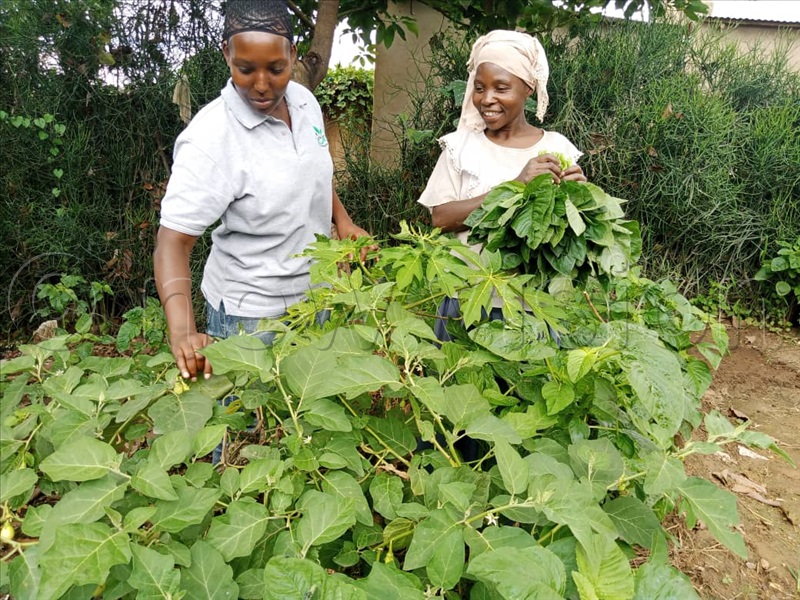By Ritah Mukasa
Nakivale refugee settlement is home to over 140,000 refugees from Congo DRC, Rwanda, Burundi, Somalia, Eritrea and South Sudan.
However, majority, mostly women, have unpleasant stories from their past, marred with rape, torture and starvation but Good Samaritans have restored their hope and are now living better lives.
One such is Youth Initiative for Community Empowerment (YICE), which has introduced over 500 families to vegetable growing using Regenerative Farming Techniques to save the environment, all while boosting people’s health and livelihoods.
One of the beneficiaries is Winnifred Nyirandatira 43, a resident of New Hope village where she lives with her husband and six children who are between 18 and 10 years.

The family moved to Uganda from Congo DRC in 2007 due to war. They were farmers growing sorghum, sweet potatoes, pumpkins and onions for subsistence and commercial purposes.
“We trekked for weeks to reach Uganda. It was hell. We first settled in Ruhooko village for two years before coming to New Hope,” Nyirandatira says.
They worked for host communities to survive. A full day spent in the garden earned them either a small bunch of matooke, a few sweet potatoes or cassava, but this was barely enough for the family.
In 2015, when they moved to New Hope, life got worse because then, they struggled to survive. The host communities they could work for were miles away and It was hard to move on empty stomachs.
They looked at the food ratios from World Food Programme (WFP) for survival.
But she says, these couldn’t take them even a week.
Fortunately, as they were still praying to God for a miracle, Lady luck smiled their way when a friend introduced them to YICE in 2021. Their life changed.
“The agronomists visited my home and helped me to set up the garden,” she recalls adding, “The soil was bad, so, we added manure. After, they gave us seedlings and trained us how to maintain the garden during the dry and rainy seasons.”
Nyirandatira has since been growing beetroot, spinach, carrots, pumpkins, spring onions and sukuma wiki.
She says, they have a steady supply of vegetables and therefore, no longer worry about food. She also sells the surplus.
Weekly, she earns sh5,000 which she uses to get treatment for the family and also, buys necessities such as salt, sugar and soap.
“Beetroot helps to restore blood, energy and boost our immunity as well,” she says.
Besides, they also share the vegetables with two of their needy neighbours whom they are helping to set up own gardens as well.
The family stays on 50X100 ft piece of land. The garden occupies a small fraction of the compound.
Elsewhere, Gorreti Ntirenganya 40, is another beneficiary. She stays with her husband and five children in New Hope village.
They used to do business while in Rwanda. Insecurity pushed them to move to Uganda in 2017.
The couple used to spend sh5,000 weekly on vegetables yet they were jobless and financially constrained.
Last year, YICE helped them set up a vegetable garden in their backyard. They grow ntula, eggplants, sukumawiki, spinach and dodo.
Ntirenganya says, on days when they fail to get food, they survive on vegetables.
“We no longer starve like it was years ago. I am glad to have food security,” she asserts.
However, unlike Nyirandatira who earns from her garden, Ntirenganya doesn’t believe in selling vegetables.
She only gives away the surplus to her neighbours reasoning that it is ungodly to sell food to needy people.





